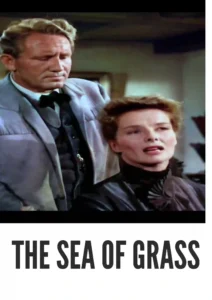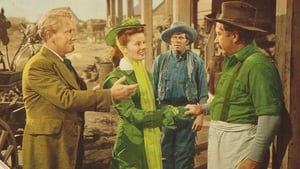Video Sources 0 Views

Synopsis

Dive into the expansive landscapes and dramatic narratives of The Sea of Grass, a classic Western drama from 1947, now beautifully colorized for a fresh viewing experience. Directed by Elia Kazan, this film features the legendary duo of Spencer Tracy and Katharine Hepburn, whose performances breathe life into a story about love, conflict, and the relentless pursuit of dreams against the backdrop of the American West. This HD download offers both nostalgia for classic film lovers and an engaging introduction for new audiences.
Set in the vast plains of New Mexico, The Sea of Grass follows the tumultuous relationship between two strong-willed characters: a cattle rancher named Col. Jim Brewton (Spencer Tracy) and his wife, a spirited woman named Lutie (Katharine Hepburn). Their marriage is tested by the challenges of frontier life and the encroachment of civilization on their land.As Jim struggles to maintain his way of life amidst changing times, Lutie finds herself torn between her love for him and her desire for a different future. The film explores themes of loyalty, sacrifice, and the impact of progress on traditional values. With stunning cinematography that captures the beauty of the American landscape, The Sea of Grass is not just a story about love but also a reflection on the American spirit.
The film boasts an impressive cast that enhances its dramatic narrative:
- Spencer Tracy as Col. Jim Brewton
- Katharine Hepburn as Lutie Brewton
- Melvyn Douglas as Dr. John Muir
- Edgar Buchanan as Sheriff
- John McIntire as Sam Brewton
Blending elements of Western drama with romance, The Sea of Grass is a compelling exploration of human relationships set against the backdrop of an evolving America. Its rich storytelling and character development make it a standout in both Tracy and Hepburn’s filmographies.
Released in 1947, The Sea of Grass is emblematic of Hollywood’s Golden Age, showcasing the star power of its leads and the craftsmanship of its director. This period saw films that not only entertained but also commented on societal changes occurring in post-war America. While it may not be as widely recognized as other classics featuring Tracy and Hepburn, it offers valuable insights into their dynamic as actors and their ability to convey deep emotional truths.
This colorized version has been meticulously restored using advanced digital techniques to enhance visual appeal while preserving the film’s original essence. The colorization process involved analyzing grayscale tones from the original footage and applying appropriate colors to each scene. This careful attention to detail ensures that viewers can appreciate both the narrative and aesthetic qualities that have made this film a classic.
- : Elia Kazan
- : Richard Murphy
- : The novel by Conrad Richter
- : Lee Garmes
- : William H. Ziegler
- : Columbia Pictures
- : Columbia Pictures
- : 119 minutes
- : MP4
- : HD (1080p)
- : Compatible with most devices, including smartphones, tablets, computers, and smart TVs.
While The Sea of Grass may not have achieved iconic status like some other films starring Tracy and Hepburn, it remains an engaging drama that showcases their exceptional talent. Critics have praised its lush cinematography and strong performances, making it a worthwhile addition to any classic film collection. The narrative’s exploration of personal conflict amid societal change resonates with audiences even today.
- : What is The Sea of Grass about?
- A: The Sea of Grass tells the story of a cattle rancher and his wife navigating love and conflict in New Mexico’s frontier.
- : Is The Sea of Grass (1947) a well-known classic?
- A: While it may not be as famous as other Tracy-Hepburn films, it is appreciated for its strong performances and themes.
- : Is this version colorized?
- A: Yes, this version has been professionally colorized to enhance your viewing experience.
- : What makes The Sea of Grass interesting for classic film fans?
- A: It offers insights into Tracy and Hepburn’s dynamic performances while exploring themes relevant to American history.
- : What is the download format?
- A: The download format is MP4, compatible with most devices.
- : What resolution is available for download?
- A: The resolution is HD (1080p), ensuring high-quality viewing.
Watch The Sea of Grass Today!











